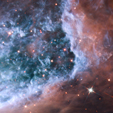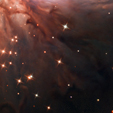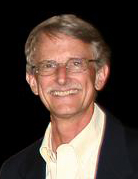


Neal J. Evans, II has been a pioneer in the study of how stars form within this Galaxy and others. To recognize his outstanding and distinguished career, Prof. Evans' colleagues and former students will meet on the campus of The University of Texas at Austin, April 25-26, 2013, at ACES [map], to discuss the numerous advances he has made, placing them in context with our current understanding of star formation in the Universe.
See: Photos of Nealfest
|
April 24th |
Welcome Reception, 7:00 pm |
|
|
April 25th |
Schedule - Day I |
|
|
|
Celebration Banquet, 6:30 pm |
|
|
April 26th |
Schedule - Day II |
|
|
|
Open House, 6:30 pm |
|
|
April 27th |
Activities around Austin - TBD |
|
|
Scientific Organizing Committee Ewine van Dishoeck |
Local Organizing Committee James Di Francesco |

Dr. Neal J. Evans, II Prof. Neal J. Evans, II has focused his research on the origins of stars and planets. He earned his bachelor's degree and doctorate in physics at the University of California, Berkeley and did a year and a half of post-doctoral work at Caltech. Although initially interested in high-energy and particle physics, he later became interested in astrophysics and worked with a research group started at Berkeley by Nobel laureate Charles Townes. Evans joined The University of Texas faculty in 1975, and teaches several astronomy courses there, including a class about the search for extraterrestrial life. One of his overarching goals in teaching is to share his interest in how things have come to be. For Evans, the journey is more important than the destination. Evans has worked with an international team of scientists that is using data from NASA's Spitzer Space Telescope to study the formation of low-mass stars and their accompanying planets. He also leads a team executing a large key project on the ESA Herschel Space Observatory and he is working with a team to map the plane of our Galaxy in the emission from dust at 1 mm. He is presently the Edward Randall, Jr. M.D. Centennial Professor in Astronomy for the Department of Astronomy at |


